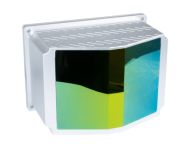The automotive manufacturers most commonly use the following three types of sensors in autonomous vehicles: cameras, radars and lidars.
This report counts the sensors used in L1-L5 autonomous vehicles.
L1 level: L1 level autopilot is mainly based on basic driving assistance functions (such as cruise control). It has been popularized globally, and the market penetration rate will further increase in the future.
L2 level: L2 level automatic driving includes a series of advanced driving assistance functions, mainly intelligent active safety functions, including ACC adaptive cruise, LKAS lane keeping assist, AEB automatic brake assist, fully automatic parking, etc. At present, L2 autonomous driving is developing rapidly, especially in the private car market in China. It has been rapidly popularized. With the upgrading of automotive products, the decline in technology costs and the increase in consumer demand, the future market penetration rate will continue to increase.
L3 level: The L3 level autonomous driving system can be responsible for the main dynamic driving tasks under restricted conditions. The driver only needs to take over in time when the system issues a takeover request. At present, L3 autonomous driving has not yet been popularized in the private car market, but some countries have begun to provide policy regulations and support for L3 autonomous driving (such as Japan). It is expected that certain growth will be achieved after 2023, and shipments will reach 2024.
Level L4: Level L4 autonomous driving system can automatically perform all dynamic driving tasks under restricted conditions. It is currently mainly used in public or commercial autonomous taxi and shared car services, and has not been applied in the private car market. , The application scenarios are relatively limited, and it is expected that small-scale and limited applications will be mainly carried out in the public or commercial fields in the next 5 years.
Level L5: The L5 level autonomous driving system can replace the driver to automatically perform all dynamic driving tasks and achieve full automatic driving. It has not yet been applied in the market.


According to the new market research report “Global Autonomous Vehicle Sensors Market Report 2023-2029”, published by QYResearch, the global Autonomous Vehicle Sensors market size is projected to reach USD 22.04 billion by 2029, at a CAGR of 9.5% during the forecast period.
- Global Autonomous Vehicle Sensors MarketSize(US$ Million), 2018-2029

Based on or includes research from QYResearch: Global Autonomous Vehicle Sensors Market Report 2023-2029.
- Global Autonomous Vehicle Sensors Top19Players Ranking and Market Share(Based on data of 2021, Continually updated)

Based on or includes research from QYResearch: 2021 data information of Global Autonomous Vehicle Sensors Market Report 2023-2029.
The global key manufacturers of Autonomous Vehicle Sensors include Bosch, Continental AG, Denso Corporation, Veoneer, Valeo, Hella, Panasonic, Aptiv, Hitachi, ZF Friedrichshafen AG, etc. In 2021, the global top five players had a share approximately 50.0% in terms of revenue.
Contact Us
If you have any queries regarding this report or if you would like further information, please contact us:
QY Research Inc.
Add: 17890 Castleton Street Suite 369 City of Industry CA 91748 United States
EN: https://www.qyresearch.com
E-mail: global@qyresearch.com
Tel: 001-626-842-1666(US) 0086-133 1872 9947(CN)
JP: https://www.qyresearch.co.jp
About QYResearch
QYResearch founded in California, USA in 2007.It is a leading global market research and consulting company. With over 16 years’ experience and professional research team in various cities over the world QY Research focuses on management consulting, database and seminar services, IPO consulting, industry chain research and customized research to help our clients in providing non-linear revenue model and make them successful. We are globally recognized for our expansive portfolio of services, good corporate citizenship, and our strong commitment to sustainability. Up to now, we have cooperated with more than 60,000 clients across five continents. Let’s work closely with you and build a bold and better future.
QYResearch is a world-renowned large-scale consulting company. The industry covers various high-tech industry chain market segments, spanning the semiconductor industry chain (semiconductor equipment and parts, semiconductor materials, ICs, Foundry, packaging and testing, discrete devices, sensors, optoelectronic devices), photovoltaic industry chain (equipment, cells, modules, auxiliary material brackets, inverters, power station terminals), new energy automobile industry chain (batteries and materials, auto parts, batteries, motors, electronic control, automotive semiconductors, etc.), communication industry chain (communication system equipment, terminal equipment, electronic components, RF front-end, optical modules, 4G/5G/6G, broadband, IoT, digital economy, AI), advanced materials industry Chain (metal materials, polymer materials, ceramic materials, nano materials, etc.), machinery manufacturing industry chain (CNC machine tools, construction machinery, electrical machinery, 3C automation, industrial robots, lasers, industrial control, drones), food, beverages and pharmaceuticals, medical equipment, agriculture, etc.